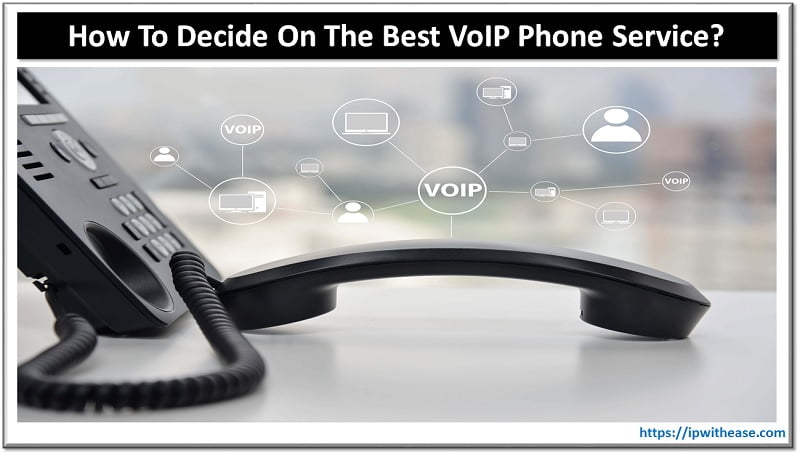Every piece of technology has potential downsides. Due to its indispensable nature to your company’s functioning, communication technology carries with it an inherent degree of danger.
While it may seem like unified communications (UC) is the answer to all your business communication needs, before you make the switch, be aware of these potential risks.
UC can improve communication and collaboration among employees, but it also comes with its share of possible problems. From security breaches to interoperability issues, here are seven risks to consider before deploying UC in your organization.
7 Potential Risks to Be Aware of Unified Communications
1. Low Data Center Security
The vast majority of UC services are dependent on a data center to provide both continuous services and storage for your most important and sensitive communication data. But what occurs when the safety of that data hub is compromised?
You will need to take precautions to ensure that your information centers are regularly backed up and maintained in order to protect yourself from the effects of any potential disaster, irrespective of whether you run your own servers or outsource the task to another company.
2. Poor Data Encryption
In the age of digital communications, businesses rely heavily on data encryption to protect their information. However, poor data encryption can pose a serious risk to unified communications (UC).
UC systems allow businesses to combine different communication methods, such as voice, video, and instant messaging, into a single platform. This can make it easier for employees to collaborate and stay connected. However, it also means that a security breach in one area could potentially expose all of the business’s communications.
To ensure the privacy of your communications, you should encrypt all of your messages, and further security measures may be necessary for certain documents. Not all services automatically encrypt your messages, so you’ll need to either find a provider who does or apply extra safeguards to your outgoing and incoming communications.
3. Employee Errors And Vulnerabilities
One of the biggest dangers in UC is the potential for employee errors and vulnerabilities. With so many users accessing the same platform, it only takes one mistake to introduce a security breach.
For example, employees may accidentally send sensitive information to the wrong person or post confidential information online. They may also click on phishing links or download malware without realizing it.
To mitigate these risks, businesses need to provide employee training on UC security and have policies and procedures in place to quickly contain any incidents. In addition, businesses should consider implementing security features such as data loss prevention and malware protection.
4. Lack Of Master-Level Security Control
UC systems can be complex and often lack the robust security controls of more traditional communications systems. This can pose a serious risk to businesses, as UC systems are often used to handle sensitive information.
In order to mitigate this risk, businesses should carefully assess their UC security needs and put in place appropriate controls. This may include segregated networks for voice and data traffic, strict access control measures, and ongoing monitoring of UC activity.
5. Low Security And Access Controls
One of the most significant risks is the potential for low security and access controls. If proper security measures are not in place, unauthorized users may be able to gain access to the system and view/ access sensitive information.
Additionally, if access controls are not properly implemented, unauthorized users may be able to make changes to the system that could disrupt operations or lead to data loss.
6. Poor Messaging Or Data encryption
If messaging and data encryption are not implemented properly, there is a risk that sensitive information could be intercepted and decoded by unauthorized individuals. This could lead to serious security breaches and put the entire business at risk.
As such, it is essential that businesses take care to properly secure their unified communications systems to ensure that all messages and data remain confidential. Without proper security measures in place, businesses risk exposure to potential threats that could jeopardize the safety of their information.
7. Vendor Experience
When an organization opts for a unified communications solution, they are essentially entrusting its communication infrastructure to a third-party provider.
This can be a risky proposition, as there is no guarantee that the provider will be able to deliver on their promises. Furthermore, if the provider does not have adequate experience in delivering unified communications solutions, they may not be able to provide the level of support and service that is required.
Vonage provides a variety of communication solutions, including VoIP services, cloud communications, and united communications. The company has a strong focus on providing a good customer experience, and this is reflected in its vendor experience. With a team of highly trained and experienced sales and support staff, they are able to provide a high level of service and support.
Invest In Right Unified Communications Solutions
All of these security challenges are eventually surmountable, but you’ll need two crucial resources to do it.
First, you must have a thorough understanding of these security vulnerabilities, including where they originate, why they are hazardous, and how to combat them. Second, you must be willing to commit adequate resources (i.e., effort and money) to avoid them from developing into full-fledged problems.
Vonage’s unified communication solutions, for example, offer a secure solution for businesses of all sizes. With Vonage, you can overcome common security issues, such as data breaches and hacking.
If you are able to surpass these challenges, your UC services will provide adequate safety for your organization, allowing you to continue communicating swiftly and securely.
Bottomline
While UC is a powerful communication tool, it’s important to be aware of the potential risks involved before implementing it in your organization. By taking the time to understand these risks and put measures in place to mitigate them, you can help ensure that your UC implementation goes as smoothly as possible.
Thanks for reading! We hope this article has helped you understand some of the key considerations when choosing unified communications.
Continue Reading:
What is GSM? Mobile Technology
SIP Trunking vs PRI -Detailed Comparison Guide
ABOUT THE AUTHOR
IPwithease is aimed at sharing knowledge across varied domains like Network, Security, Virtualization, Software, Wireless, etc.



